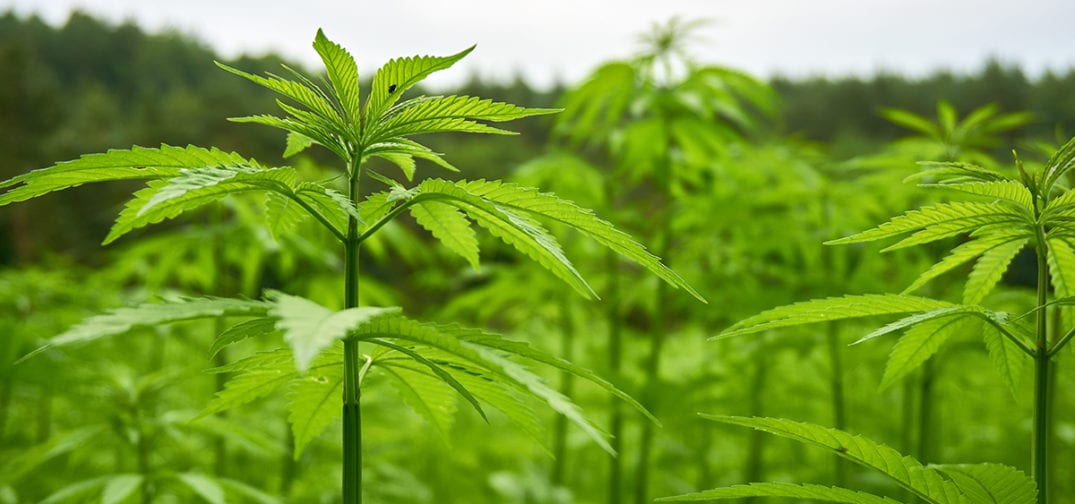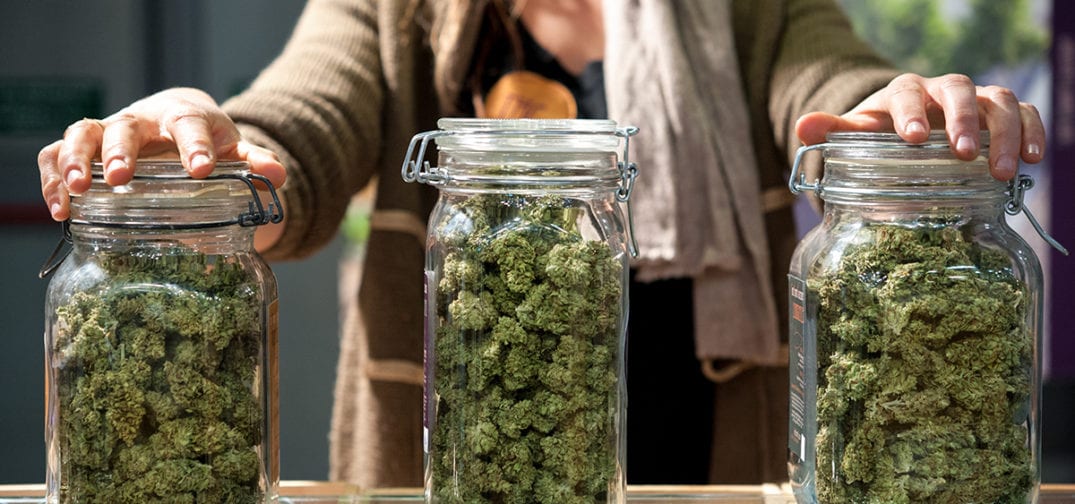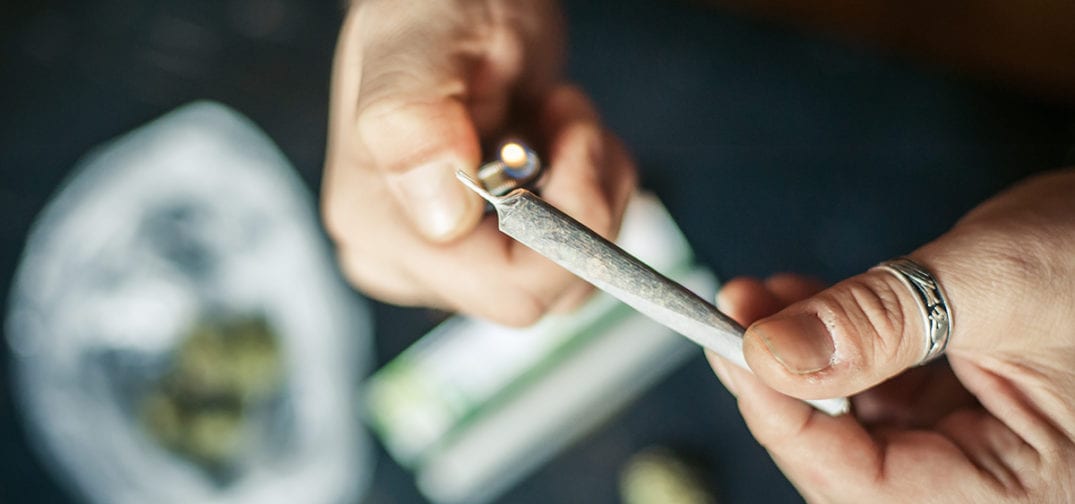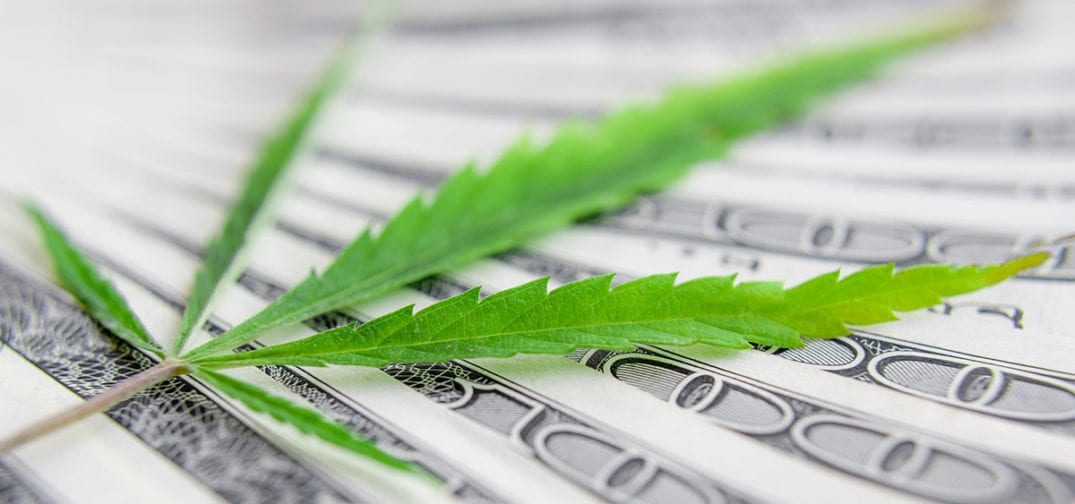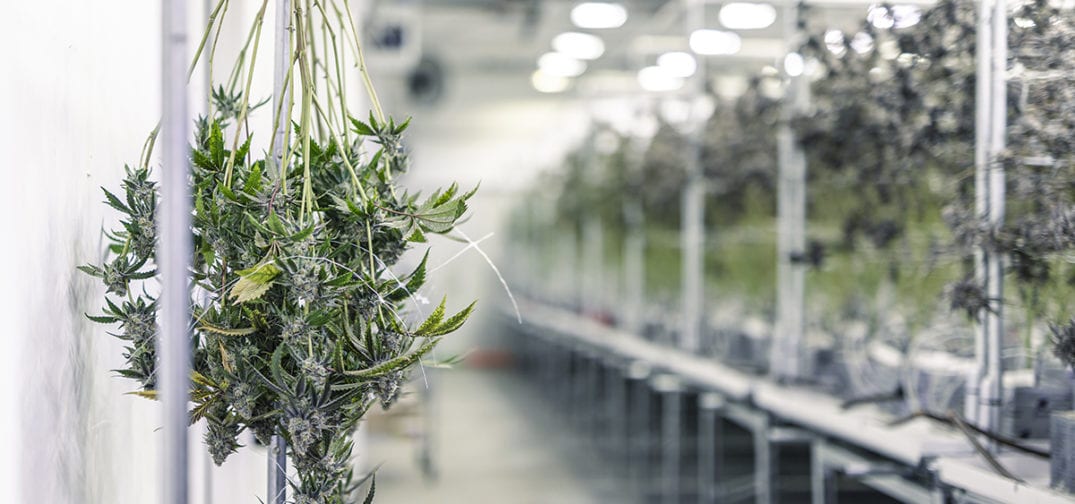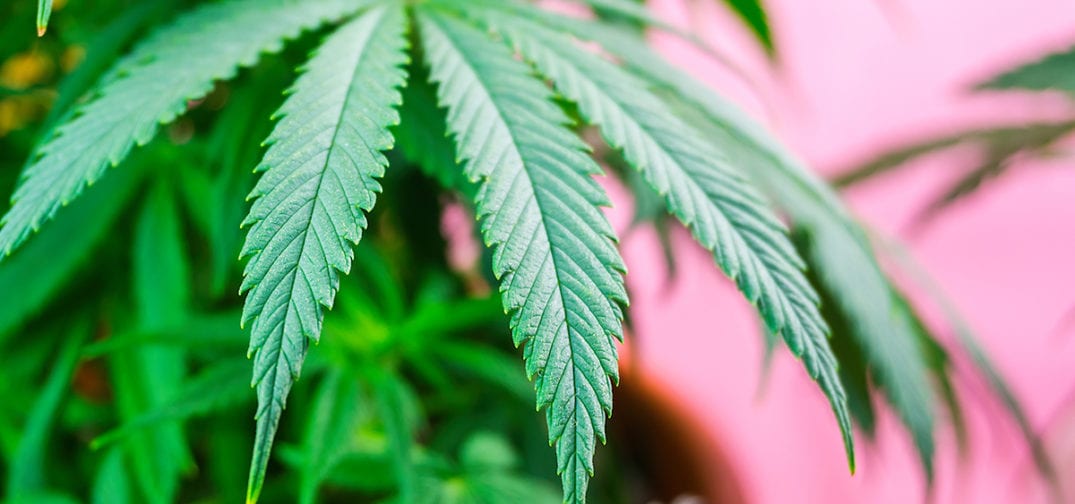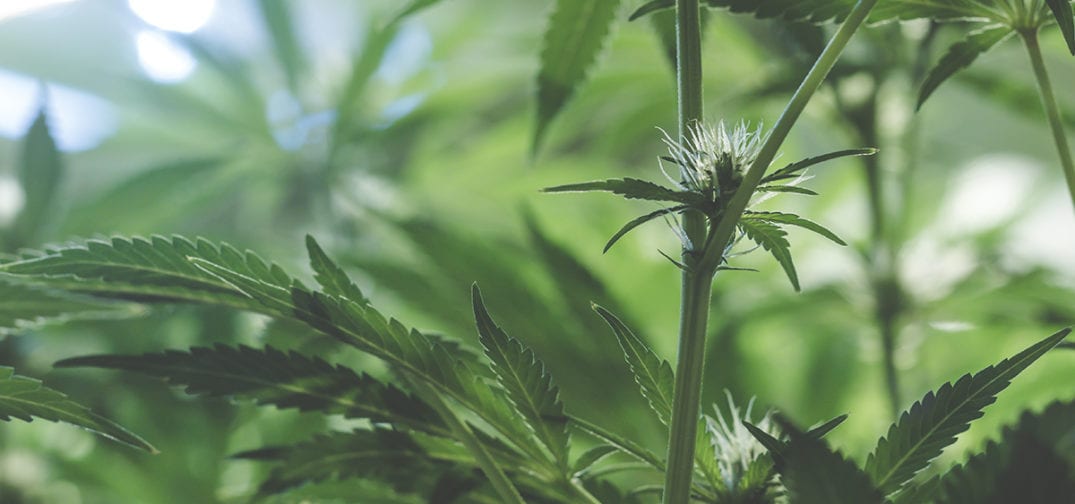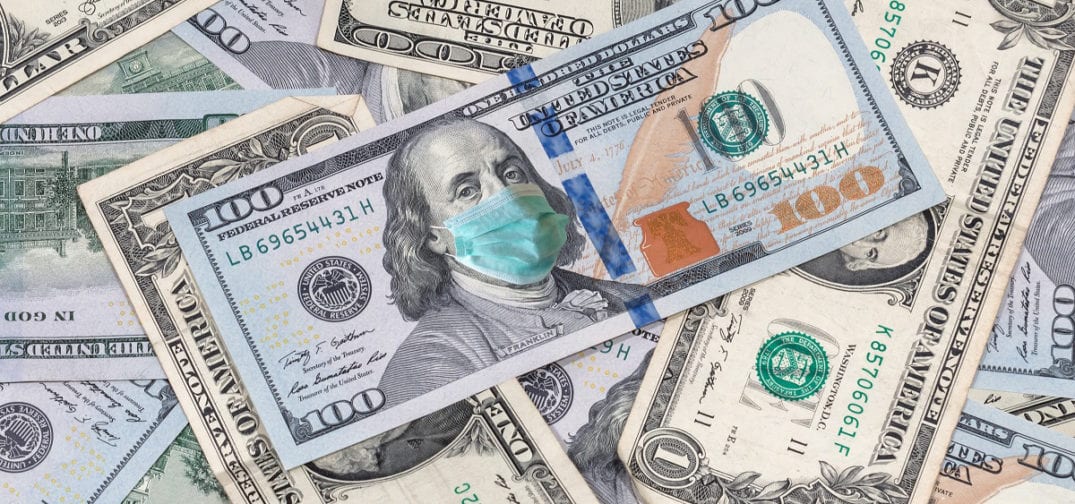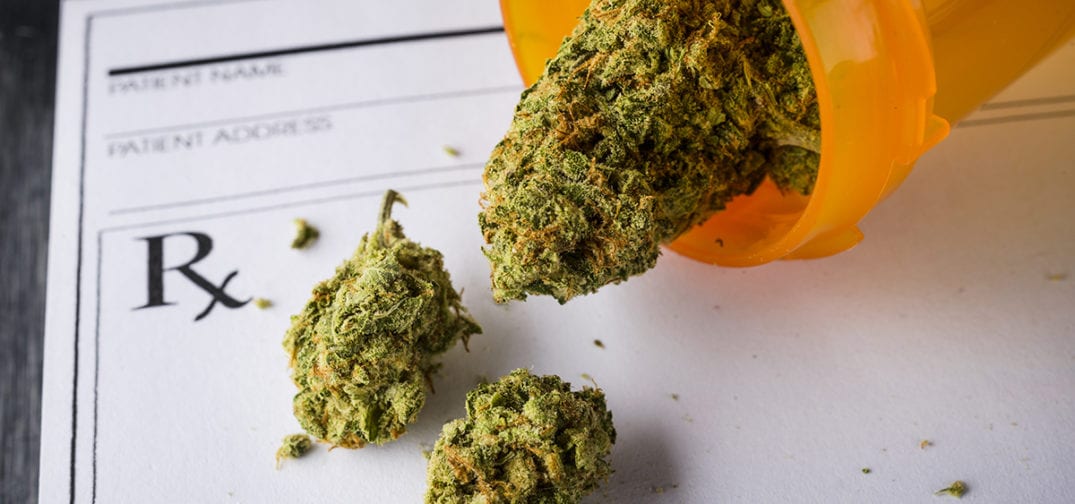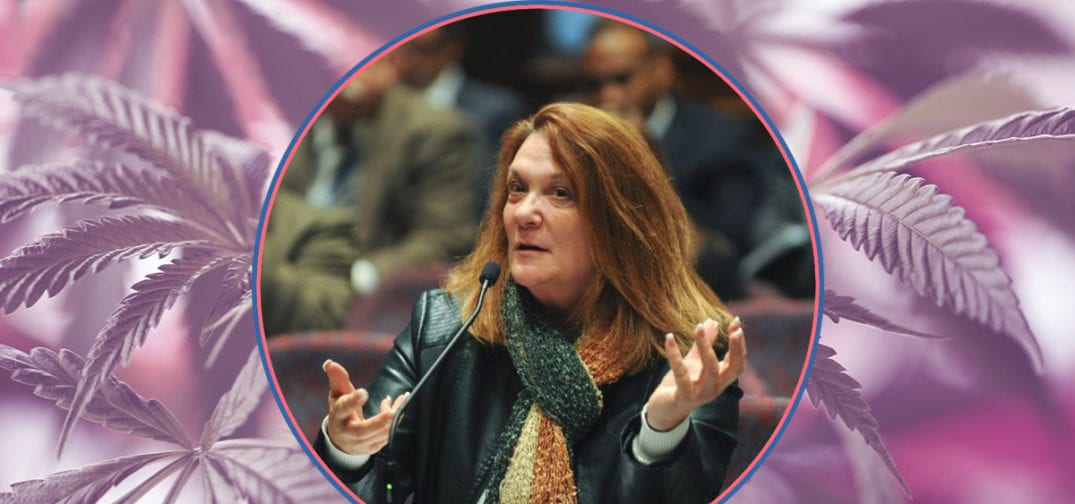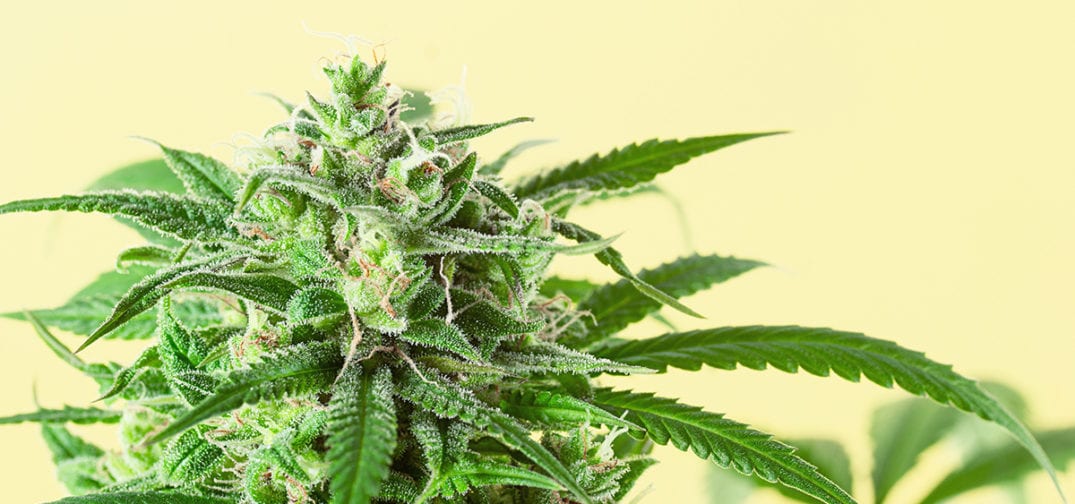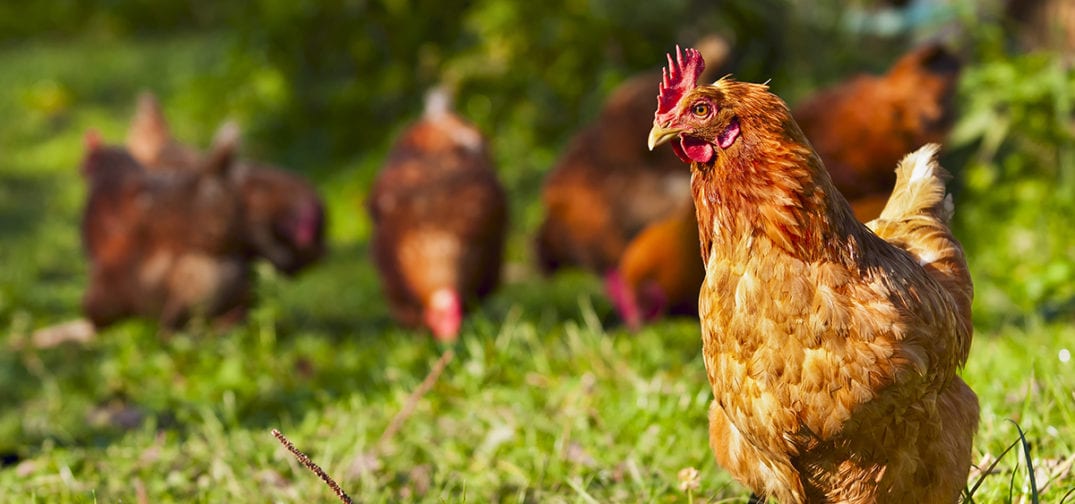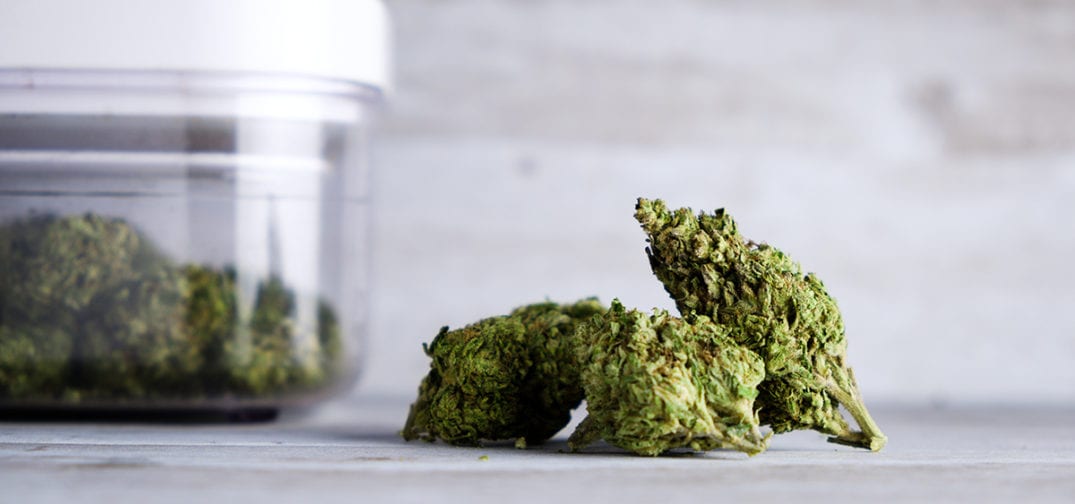Pamela joined our host TG Branfalt for a discussion in January about the launch of Illinois’ adult-use cannabis program, the legislative efforts that preceded it, the work being done by the Cannabis Business Association of Illinois to make the transition smooth for both cannabis patients and companies working in the space, how Illinois could influence even more states to legalize, and more!
Tune in to this week’s episode of the Ganjapreneur.com Podcast via the media player below or scroll further down to find a full transcript of the interview.
Listen to the podcast:
Read the transcript:
Commercial: This episode of the Ganjapreneur Podcast is made possible by Dama Financial. Get access to a secure, transparent banking solution with Dama Financial. Secure your cash, make and receive electronic payments and stop worrying that your account will be shut down for being a cannabis business. Protect your money with an FDIC insured bank account and discover Dama’s suite of sustainable, compliant financial products including merchant processing. Schedule a free consultation at damafinancial.com today, or call 877-401-3262. Dama Financial is an agent of its financial institutions and money transmitters.
TG Branfalt: Hey there, I’m your host TG Branfalt, and thank you for listening to the Ganjapreneur.com podcast where we try to bring you actionable information and normalize cannabis through the stories of ganjapreneurs, activists and industry stakeholders. Today I’m joined by Pamela Althoff. She’s the Executive Director of the Cannabis Business Association of Illinois, a statewide cannabis industry organization advocating for patient wellbeing, consumer safety, social equity and inclusion, job creation, community investment, and responsible cannabis use. She’s also a former state senator, an Illinois Senate Republican Caucus Chair. How are you doing this morning, Pamela?
Pamela Althoff: I am great. How are you, sir?
TG Branfalt: I’m doing just fine. I’m really excited to sink my teeth into this interview today. We’re going to talk about Illinois, we’re going to talk about politics. But before we do any of that, I want to get to know about you a little bit. What’s your background and how’d you end up in the cannabis space?
Pamela Althoff: My background is actually as a long ago graduate of Illinois State University in education, taught school for a long time, met a boy, moved, could not find a job in education, so went through a series of sales positions, ultimately got engaged in local politics, and when my state senator stepped down due to illness, I was at that time a local mayor and my mayors advocated for me to be his replacement. I was appointed to the State Senate in 2003 and served until 2018. That’s my professional background. How I got in the cannabis space is another crazy story which just goes to prove you got to take those opportunities when they’re given to you.
The executive director of the Medical Cannabis Alliance, which is what our organization began as when the State of Illinois only had a medical program, stepped down to take a position with the new administration in Illinois after the 2018 election, and when they went searching for a new executive director, my name showed up on several of the lists of lobbyists in Springfield as well as some of the board members, and here I am.
TG Branfalt: That’s really incredible. In the change from medical to recreational, what is the organization doing differently? What are they advocating for now?
Pamela Althoff: Well, I don’t know if it’s changed that dramatically, except that we’re acknowledging that the State of Illinois has decided to become the first state to legislatively legalize cannabis, and so we have changed our medical organization, which was pretty tightly, loosely grouped set of same players. We knew each other, we had gone through the application process together. Obviously, we provided the product to the dispensary, so it was a closed group. The state regulated that industry very carefully. There were only so many licenses available. So rather than being just limited to medical, we decided early February, March when it looked like we were going, the state was going to legalize cannabis, that we needed to evolve to meet the new needs of the State of Illinois in a larger more focused cannabis association. So we just went from that medical focus to now we represent the entire industry here in the State of Illinois.
TG Branfalt: So what were some of the changes that came about with the medical program specifically when legislators decided to legalize cannabis and the launch of that market?
Pamela Althoff: I think what it was is the medical industry, because we were so well vetted by the State of Illinois regulators, the larger piece moving into recreational was to allow the existing cannabis industry in the state to open recreational dispensaries and continue to cultivate the cannabis product. We also work very, very collaboratively with all of our stakeholders, which was law enforcement, regulators, legislators and other vested minority representatives to ensure that our social equity piece of this legislation met the needs of our elected officials, and a lot of that was to ensure that the cannabis industry reflected more of the population diversity in the State of Illinois. We wanted to give those who were just proportionately impacted by the war on drugs an opportunity to gain access into the industry. Whether that was through owner/operator opportunities or whether that was through a career, we didn’t care. We just wanted very seriously to provide that opportunity to those people that were impacted, those families that were impacted by the war on drugs.
TG Branfalt: When you guys were looking at these social equity provisions, did you look towards other states for your model or did you guys develop something in-house in collaboration as you said?
Pamela Althoff: Well, I’ll be very frank here. We didn’t find any other really viable options in other states. We’re all struggling with how that would look, and I think we took … It’s why the legislation which actually started many years ago, I would tell you that almost immediately after we started the medical pilot program, legislators started to advocate for recreational use, and so this was a significantly long … Even though I don’t think that most of the population in Illinois realized it, there was a great deal of upfront work done by concerned legislators, particularly the sponsors, Senator Steans and Representative Cassidy. We looked at how we wanted and how we wanted to ensure that it was legal, that our social equity programs would meet constitutional muster, and it took us, again, a lot of collaboration with a lot of individual people and I think that we’ve got a great framework, a really good template.
Now the challenge to all of us, the industry as well as those people, the regulators and elected officials and again the individuals who will gain access to the industry, it’s up to us now to ensure that we’re going to make it work. That’s always the challenge once you put the framework into place, is then to carry it out. I think that we are all committed to working together to ensure that there’s a great deal of success. I happen to know that other states, particularly out East — Massachusetts, New York, Pennsylvania, New Jersey — are looking at the State of Illinois social equity parameters and are trying to incorporate what we’ve done into their legislation right now.
TG Branfalt: Well, I think a lot of the states that you mentioned, I live in New York myself, we don’t have a ballot referendum, and I think a lots of states are looking towards the process in Illinois, again as you said, the first state to legalize through the legislature. Tell me about the run-up to recreational sales. What were the most prevailing concerns for business owners in the space?
Pamela Althoff: Well, the industry business owners were a little concerned about making sure that we had product availability. Let me take two steps back and set the stage. We had an administration, the Pritzker administration was very supportive and very committed to legalizing cannabis. We talked a long time about how we all recognize that there already is an illicit market here in the State of Illinois, and the idea is if it exists, then isn’t it our obligation to ensure that we legalize and make sure that those people who choose to consume have a safe and a quality product? The medical program worked extraordinarily well. In all of the time that the medical program was in existence, up and running, there was not a single diversion from the State of Illinois. So when you saw all of those “drug busts” throughout the country, not once did they ever find a product that came from the State of Illinois. That’s how well we had regulated the medical industry.
As we ran into recreational, two things happened. One, we kept the same high standards as we went forward. But as I had stated earlier, the Pritzker administration was so committed to this that they also chose to expand the medical conditions that would be acceptable to the medical cannabis program. So when we passed the recreational program, we had the perfect storm. We had an increase in the conditions that allowed patients to access the medical program, and then we legalized recreational. So we had this huge demand almost immediately from the medical side, and then we only had a six-month run up to January 1 to be ready for a brand new recreational market. So there was some concern again about product availability. The first license for recreational growth was not received until August.
TG Branfalt: Wow.
Pamela Althoff: Yeah, and I remind everyone that cannabis is not a widget. It takes time to grow. It’s a crop, it’s a product that needs 12 to 16 weeks to actually come to fruition. So there was concern about that from the very beginning. We believe that we will actually be up to full thrust by May of 2020, and we’ll be able to be regularly providing product not only to the existing dispensaries that now can sell recreational product, but also to those dispensaries that are currently in the queue to be reviewed and potentially licensed. There’s 75 new licenses that are available that are being reviewed as we speak, all of those applicants. That really was the largest concern. Then the legislation that was passed gave huge amount of ability to local units of government to make determinations on whether or not they wanted to engage in the new adult use cannabis market.
In other words, if they chose not to let these companies locate within their corporate boundaries, that in fact was up to them. So the industry, even though the state legalized it, was not exactly sure how that was going to be handled on a local basis. We did have communities that housed a medical dispensary already who chose not to engage in the adult use or in the recreational icing of cannabis. So then we had dispensaries that had to make decisions about where they’re going to stay there and continue to operate as a medicinal dispensary or whether they actually were going to choose to relocate and only deal on recreational. So those were some of [inaudible 00:13:38] the bumps, they’re a little bit of challenges, not unanticipated but certainly something that we need to address.
TG Branfalt: How many communities do you know, percentage wise, how many have opted out? I know in Massachusetts, it’s upwards of 70%, in California it’s over 60%. Do you have figures for that in Illinois?
Pamela Althoff: Not in that kind of a fashion. I can tell you that there were 55 medical dispensaries operating and approved by the State of Illinois that were permitted to immediately apply for and obtain, if they had local zoning, a license for recreational cannabis. Out of those 55, I believe we are only at 32 that have obtained their license and are operating. Some obtained a license from the state but did not get their local zoning, some of the dispensaries are still awaiting the decision by local government to decide whether or not they’re going to permit the adult use.
TG Branfalt: Since legal sales have launched, you said that there was concern about shortages, there’ve been reports of shortages, even some dispensers being forced to temporarily close due to these sorts of shortages, how are operators that you’re working with overcoming these early supply challenges?
Pamela Althoff: Well, I always tell people it depends what you mean by shortages. I would tell you that, first and foremost, the Illinois cannabis industry remains committed to their medical patients. Basically the way the legislation worked is cannabis patients had to register with a specific dispensary to obtain their cannabis product. So these are longterm relationships where often the patients were recognized right by the people who were selling them their cannabis product, their medical product. So we’re very cognizant of the responsibility that we owe these patients. So in the legislation, there is a requirement that each dispensary maintain a 30-day inventory that meets the need of our medical patients. So that too added to the recognition that we’re not going to have as much recreational product as people originally thought. So operators who have cultivation did apply for recreational licenses to be able to expand their existing facilities and start to grow immediately. All 20 cultivation sites that were approved by the State of Illinois also obtained permission to expand their facilities.
TG Branfalt: Oh wow.
Pamela Althoff: Yeah. They’re all up and getting ready, or some of them are actually almost completed with construction, which is why we’re saying that we anticipated this, we just ran into a few hiccups and bumps. One of them also being as obtaining equipment. California too is going through all of a sudden a large expansion within the cannabis industry, and off times we’re hearing here in Illinois that the required environmentally appropriate lighting, watering, all of the facilities or the equipment that we need for the expansions are on backorder because they’re being diverted to California right now, which just beat us a little bit in that kind of expansion role. So some of the construction is a little bit behind because of that, but everyone is committed to being up and running.
We are also, as an association, committed to trying to ensure that we are dispersing product across all dispensaries throughout the State of Illinois so that they all have some product. But as you might expect, some of our medical patients want to try the new strains that are available and may not be interested in gaining access to something that they had been using in the past. We also have noted that people still are very much interested in flower, and so there was somewhat of a run on a lot of the flower product while we still had available consumables. So again, it depends how you define shortages. We had product but we may not have had the product that you specifically wanted access to.
TG Branfalt: You said that you expect to be fully fleshed out the market by May where everyone’s up and running. What does your organization envision the market looking like, say in about a year? Are there any expectations for social use provisions in different cities or on a statewide basis?
Pamela Althoff: Sure. Tim, it’s funny that you bring that up. We are already anticipating social use. In fact, I believe at the end of this month, because the State of Illinois allowed local units of government to address those issues, we allowed consumption in tobacco shops and in areas that are under the same roof as dispensaries. There has to be a wall in between the dispensary and where you would have onsite consumption, but again it would have to be under the same … within the same building. It just so happens that the City of Springfield, Illinois is actually going to be considering an ordinance at the end of this month to approve an onsite consumption lounge in conjunction with one of their local dispensaries. So I anticipate over the next year we’re going to see a lot of that local action. City of Chicago is discussing how they’re going to deal with this, and I’m also going to suggest that, come spring session in Illinois, we’re going to see several pieces of legislation addressing some type of onsite consumption within the State of Illinois
TG Branfalt: Are there anything else that might be … Is delivery something that’s permitted or going to be permitted? Are there any sort of these adjacent services that you expect lawmakers maybe to address in the upcoming session?
Pamela Althoff: Illinois is still somewhat of a conservative state, which is again one of the reason that legislators chose to allow local units of government to make some of those decisions. We discussed during the crafting of the legalization, legislation, delivery and those kinds of associated services, and it was just felt that it was too early for Illinois to address those things and get a piece of legislation passed. Again, as we move forward, if we are responsible and again we demonstrate “good behavior,” I’m going to gather that we too here in Illinois will see the maturing of the cannabis industry. But as a former legislator, I always tell people we evaluate the next step based on current behavior by everyone.
So it’s one of our main goals and main missions to ensure that our message to now our consumers both medically as well as from a retail basis understand it is crucial for us to be responsible in the way that we utilize cannabis in the State of Illinois. Otherwise, we’re going to see the regulators remain vigilant and rather rigid I think. So it just depends on how well this is received and how well we do again with the social equity piece.
TG Branfalt: As a former lawmaker, you had said earlier that cannabis legalization was being talked about by lawmakers shortly after medical, and to many people watching the industry, it was a surprise that Illinois came out fast, quickly, had a market basically online six months after Michigan, which had voted for it the year prior. As a former lawmaker, was it a surprise to you at how, I don’t want to say quickly, but how much support I guess legalization had in the previous session?
Pamela Althoff: Well, I’m going to argue with you. I don’t think it did. I think that the sponsors of the legislation crafted a core group of legislators that worked very collaboratively and really worked to educate the rest of the legislators in Illinois. It really was a lengthy process, as I stated. They started working on this issue almost immediately after we had approved the medical program, which was back in 2011. So it may have appeared that Illinois moved rapidly, but that’s I think just because people started to read about it in the paper as the legislation moved forward. But there was a huge amount of upfront education that was being done in Springfield in the General Assembly to make legislators feel more comfortable. Again as I stated, part of our success was because the medical program had been so well regulated and so responsive to that regulation that there was I think a more comfort level felt by many of the legislators going ahead and approving the legalization of adults social use cannabis.
Then there was the provision about the expungement. That was an important piece to a lot of legislators to ensure that we did in fact have a vibrant expungement program for those people who were arrested for now the legal possession limits, and State’s Attorney Kim Foxx was very instrumental in helping us craft that program. As you can see now in Illinois, many of our state’s attorneys are moving forward to ensure that those records are in fact expunged in a timely fashion. Again, I think that the social equity piece was another incentive for many legislators to climb on board, so to speak, and support the legislation because it did give communities as well. There’s a provision in the bill that gives them access to grant programs to communities that also were just proportionately impacted. So we wove in a lot of good outcomes for a wide variety of entities within the legislation. It just wasn’t about the cannabis industry. It was broader than that. I think that that is what helped us gain additional support from other legislators. I mean, even a few Republicans voted for the bill, Tim.
TG Branfalt: I got to ask. You were the former Republican Caucus Chair for the Senate. Why do you think, as a Republican … I have two questions for you. Were you always pro-cannabis, and why do you think that so many in your party still stand opposed to broader legalization?
Pamela Althoff: For me, yes. I don’t want to give away my age or anything, but I was a child of the ’70s, so maybe my past perspective played into that. It was also, again, even for me, an educational process. I was always very supportive of cannabis as a medical product. In fact, how I think my association members became familiar with me is I was one of the advocates for the option of cannabis as an alternative to opioids. I was very, very much engaged in that process here in Illinois. Through that, I became, again, much more comfortable in offering the availability to people to legally gain access to cannabis. As I stated, we all know that there was a very robust illicit market here in the State of Illinois, and so I have to tell you that I believed strongly that it would be wiser and smarter and more of a health safety issue for people here in the state to have a good quality, safe product to consume as opposed to something that they’re not exactly sure what’s in it.
As to Republicans, I think that that’s just an easy division. I know many Republicans who voted for the medical cannabis program and I know several Republicans that also voted for the recreationalizing of cannabis here in Illinois too. If there is a perception, it might be because, again, the largest entity that really advocated against recreationalizing cannabis were church-affiliated groups. Again, there might be a thought process that many Republicans still are very faith-based associated or affiliated, and so it might be that they felt that they were truly representing their constituent base from that perspective.
TG Branfalt: I mean, but it does look like … I mean in New York, just to be fair, I mean it was the downstate Democrats that really stopped it from passing last year. But nationally, you look at the house, democratically controlled actually, passing the SAFE Banking Act, the committees are passing the Moore Act, which would federally legalize cannabis effectively. But the Senate, it’s a nonstarter. I mean, to say that it’s sort of an appearance issue, I mean I-
Pamela Althoff: You’re talking on a federal level?
TG Branfalt: Yeah. I mean, the Rs and the Ds, I mean there’s a split there when it comes to cannabis policy, and I’m just wondering is it purely the faith-base or is there really some entrenched moral position? I lean sort of libertarian and I believe in state’s rights and that people should have the ability to do what they want so long as it’s not harming other people. Right?
Pamela Althoff: Mm-hmm (affirmative).
TG Branfalt: If you talk to my dad, who is a Republican, he would agree with that statement. He supports cannabis legalization as well. But why is it a harder conversation to have amongst Republicans than it is Democrats?
Pamela Althoff: It’s hard for me to answer that because I’m one of those Republicans that’s kind of on the other side of that issue. I’m going to have to guess that most of those individuals feel that they are representing a portion of the population that still believes as … We were all educated. I was an educator and I can remember having numerous curriculum plans that cannabis was a gateway drug to harder substance abuse, etc, and that perception and that belief might still be very much ingrained in a lot of individuals across the board, and Republicans might feel that those are exactly the individuals that they represent.
TG Branfalt: Okay. How can advocates try to find common ground with people they typically don’t see eye to eye with regard to this one issue?
Pamela Althoff: It’s funny. That has been one of the skillsets that I think that most people identify with me as a former legislator. I think you have to create safe havens for conversation. Education is the only way any issue finally gets addressed, resolved, moves forward, whatever phrase you’d like to use in that respect. But it’s creating an atmosphere and a culture where people who disagree can walk into a room and start to exchange information and carry that conversation forward. It is. It’s education. I made that statement earlier in our interview. I believe firmly that that’s exactly why we were successful in passing the adult use/recreational use of cannabis in Illinois, is we spent a vast amount of time and detailed information was provided to educate and make our legislators feel more comfortable in taking the action.
I think that that’s what most elected officials need, is they need the information and ability to go back to their constituents who obviously elect them, place them in office, they need that information to have that dialogue with their constituents and bring them forward and understand that as with all things, it just changes. Our social agendas, our country, everything evolves and is completely different than it was 10, 15, 20 years ago.
TG Branfalt: What was the reaction from your former Republican colleagues when you end up the Executive Director of the Cannabis Business Association of Illinois?
Pamela Althoff: You know what? It’s funny. I would tell you that people who know me well rolled their eyes and said, “Of course, you’d do that,” again, knowing my background and my ability to pull very, very different diverse individuals into a room and come up and build a consensus and craft legislation that we could actually get passed. That was my forte. So obviously, I would be someone who wants to get involved in brand new and bringing people together and talking about the issue and shining the little spotlight on it so that we can have those conversations. I mean, I’m a former educator. Can you hear that? I truly believe that those kinds of exchanges are crucial in any nascent start of whether it’s an industry, whether it’s a social concept, whatever. I think it’s absolutely crucial to continue to have honest exchange between differing opinions.
TG Branfalt: Well, I think you bring up a really good point that this is not only an industry that launches, this is an entirely new sort of social structure, a new social sort of construct. I want to thank you for your candor. I’ve tried very hard to have Republicans on this show and they’ve balked assuming that I’m going to be confrontational but … So I really appreciate you answering those questions for me. That’s something I’ve wanted to ask somebody for a very long time. What advice would you have for entrepreneurs who are interested in opening up a cannabis business in Illinois?
Pamela Althoff: There are numerous opportunities to attend events and seminars. I would be cautious in determining whether they’re viable, but anything that is put on by the State of Illinois or by our association or by our affiliated association, Women in Cannabis in the City of Chicago, any local entity, you can attend them. Most of them are free of charge. We have panels. We’re actually involved in Chicago City sponsored event in February. Again, there are numerous ones that we are participating in. You can come and learn about either owner/operator opportunities, and that’s from a legislative perspective, as well as filling out your applications, as well as suggestions about how you would find investors into your business, as well as, again, as I stated, going the other direction and finding employment in the industry and not just within the dispensary or the cultivation market, but in ancillary industries, which might be transportation, which might be security, which might be marketing, all of those things.
We’re really trying to reach out into the public, and I would strongly suggest that people attend those free seminars and determine whether or not this is something that really meets their needs and piques their interest. A lot of people have misconceptions. It’s cultivation, it’s farming. It’s not, as you might think, reefer madness. It’s really serious and very regulated work. Most of those people, when you’re in a cultivation site, have on lab coats, have on little booties on their shoes and have hairnets. It’s like a food industry. So I would strongly suggest they come and hear exactly what the industry entails and make a decision. Then there’s all kinds of follow up resources that they can also then participate if they determine this is something that they want to pursue.
TG Branfalt: Again, I want to thank you so much for this opportunity. I can’t wait to see how you evolve in this space and how the association evolves as the market matures. Where can people find out more about you and more about the Cannabis Business Association of Illinois?
Pamela Althoff: You can find us at C-B-A-I-L.org, is the website, and also provides you all the information on emailing us direct or calling.
TG Branfalt: Awesome. This has been Pamela Althoff. She’s the Executive Director of the Cannabis Business Association of Illinois, former State Senator and Illinois Senate Republican Caucus Chair. Thank you again so much, Pamela. It’s been a pleasure.
Pamela Althoff: Tim, can I have one parting comment?
TG Branfalt: Absolutely.
Pamela Althoff: I would just ask that consumers recognize that, with all nascent industries, we are going to run into bumps and some obstacles. But let me assure everyone that the industry is working very well with the State of Illinois, our regulators, also our stakeholders that have vested interest in the industry, to try and address them responsibly and in a decent timeframe, in an acceptable timeframe. I truly believe that you’re going to call me and we’re going to do this interview again in another nine to 12 months, and you’re going to hear how successful. We are truly, truly committed to making this a vibrant industry and being a template for the rest of the country.
TG Branfalt: I can’t wait to talk to you again in nine to 12 months, and by then, we’ll probably be talking about how Illinois influenced New York’s recent legalization.
Pamela Althoff: I hope that that’s true.
TG Branfalt: Thank you so much, Pamela. This-
Pamela Althoff: All right.
TG Branfalt: … has been a great joy.
Pamela Althoff: All right, thank you.
TG Branfalt: You can find more episodes of the Ganjapreneur.com Podcast in the podcast section of ganjapreneur.com and in the Apple iTunes Store. On the Ganjapreneur.com website, you’ll find the latest cannabis news and cannabis jobs updated daily, along with transcripts of this podcast. You can also download the Ganjapreneur.com app in iTunes and Google Play. This episode was engineered by Trim Media House. I’ve been your host, TG Branfalt.



